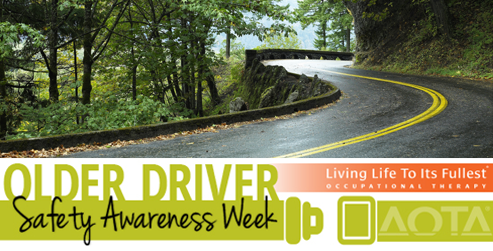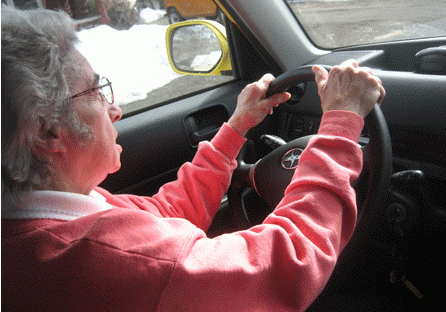Being active is important for the happiness and health of senior citizens. For the generation that got to experience the explosion of American muscle cars and the global dominance of U.S. car makers driving represents so much. Freedom, independence, a connection to the community – all that is available by simply getting behind the wheel.
As we age the physical, mental and sensory skills needed to safely operate a vehicle start to slip a little. It’s become such a subject of concern that the American Occupational Therapy Association (AOTA) is having an Older Driver Safety Awareness Week from December 2-6 this year.
The Biscoe Insurance Group, Inc wants to do our part by providing seniors as well as their family members and caregivers with advice on what older drivers need to be aware of and concerned with to ensure they keep driving safely for years to come.
Physical Concerns for Older Drivers
Take a driving fitness evaluation. There are many types of driving fitness evaluations. Some are simple self-exams that can highlight areas that may need attention. Others are more in-depth analysis done by a driving rehabilitation specialist. These specialists are trained in accounting for how medical conditions and the affects of aging can alter driving abilities. Each facility will have their own criteria for the evaluation but typically they include an examination of physical, cognitive and sensory functions as well as a test drive.
At the end of the evaluation the specialist will provide recommendations on equipment and strategies to improve driving safety if needed. You can locate nearby driving rehabilitation specialists on the AOTA website.
Test your reflexes. Quick reflexes are often needed to avoid accidents. A physician can test muscular reflexes as well as other reflexes to ensure that an older driver is physically fit enough to driver and under which circumstances.
Know how medications could affect your driving. Many prescription and even over-the-counter medications can have adverse physical, mental and sensory affects. Read the side effects for each medication you’re taking very carefully. If you have any questions about how a medication could affect your ability to drive discuss them with your physician.
Look into adaptive equipment. Adaptive equipment is specifically designed to help older drivers operate a vehicle better. From getting in and out of the car to seeing better at night there are a range of products that can help meet certain needs.
Cognitive Concerns for Older Drivers
See how sharp your cognitive skills are. People often forget how mental the process of driving is. Every second you’re behind the wheel you have to make decisions and assess situations. That takes competent cognitive abilities. Today there are tests that can be used to access cognitive skills. Not only will you be able to see where you’re current cognitive levels are, but the test will serve as a baseline for future test to see if improvements or declines have occurred.
Don’t forget to renew your car insurance. Your age may actually play in your favor when it comes to car insurance. Older drivers may be eligible for better benefits, but you have to remember to keep your insurance up-to-date to reap the rewards. Likewise if you find that another family member or friend is often driving you around in your car consider adding their name as a secondary driver on your insurance.
Drive only in areas you’re familiar with. Driving in an unfamiliar area can be confusing for any driver. For older drivers it’s best to stick to areas that you are already familiar with and know your way around so there is one less thing to worry about.
Sensory Concerns for Older Drivers
Regular eye exams are a must. The eyesight test is one of the major factors in many senior citizens not being able to renew their driver’s license. It’s important to visit an ophthalmologist annually to ensure that your prescription is up-to-date and that your eyes are healthy.
Check out your hearing. Hearing isn’t as important as eyesight, however it is an aide in safe driving. Cars have horns for a reason. Sound is just one more way of gauging what’s going on around you and alerting others. During your annual physical make sure your doctor checks your hearing levels. And always wear your hearing aides while driving if you have them.
Other options like public transportation and carpooling can also be solutions to keeping older drivers safe without limiting their ability to get around. Just because adjustments need to be made in how you get around doesn’t mean that mobility or independence no longer exists. There are a lot of ways to improve older driver safety so that they can remain on the road for longer.
Image Source: http://www.aota.org/, http://ehstoday.com/safety/dec-3-7-older-driver-safety-awareness-week?page=2
Original Source: http://www.mybiginsurance.com/family-teens/guide-driving-safely-get-older



